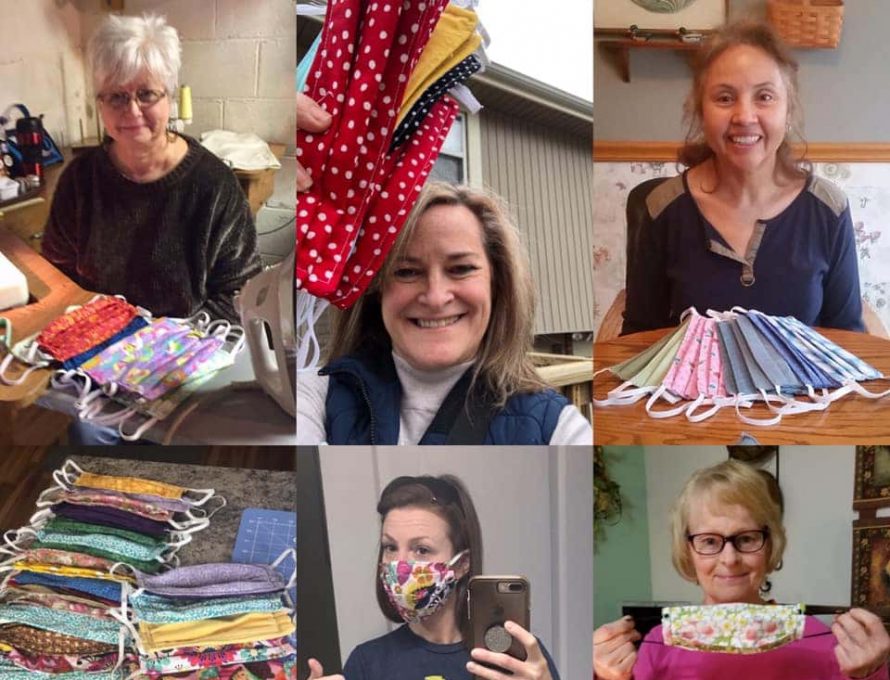SALEM – Masks, masks and more masks.
In Salem, the quilting ministry at First Baptist Church has shifted to masks, donating them to the local hospital. The same goes for seamstresses at First Baptist, Blue Springs, and at Salem Avenue in Rolla. Campers on Mission spent time at Laclede Baptist Camp sewing masks for Lebanon healthcare facilities. Even incoming Missouri Baptist University freshman Alex Nicoli has spent his days stuck at home productively, completing 1,000 masks for his local hospital. Countless others from all walks of Missouri Baptist life have joined in to help protect others in the midst of the COVID-19 pandemic.
And yet there is still a need for masks, especially now as guidelines from the Centers for Disease Control shift to recommend all American’s wear masks when out and about. Missouri Baptist Disaster Relief officials are asking churches and individuals to join the 100 Million Mask Challenge and produce masks at home. A link to patterns and instructions on making masks can be found at www.mobaptist.org/dr/coronavirus-response/. Some are simple, but others include a wire to help form the mask around the wearer’s nose, and other patterns include a slot to insert a filter for added protection. Still others fit over the N-95 masks so vital to medical professionals, helping them last longer.
Nancy DeVenuto, a member of First Baptist, Salem, said it is just one way to love her neighbor as herself.
“Our pastor challenged us: ‘We can’t be at church right now, but let’s be the church,’” she said. “What better way than to provide something really necessary now?”
DeVenuto said the church’s women’s ministry has donated more than 400 masks, supplying the local sheriff’s and police departments as well as homeless shelters, hospitals and a veteran’s home.
“It’s a God-given opportunity to show we love them,” she said. “It’s not just shoving a pamphlet in their hands. We’re showing them love. I can’t even begin to tell you how appreciative they’ve been.”
For Carol Baker, a member of Salem Avenue, Rolla, the mask-sewing grew from the desire to protect her daughter-in-law and granddaughter, who work in a local hospital.
“It mushroomed from there,” she said. “I’ve made 105, and I cut out 50 more today.”
Baker said she sees this as a way to serve others in Jesus’s name during a crisis.
“Since I can’t be on the front lines, this is something I can do.”
Baker said that though she has been a seamstress all her life, people shouldn’t let inexperience keep them from attempting to make masks.
“It’s an easy project,” she said. “The directions are pretty simple.”
Though these homemade masks are not surgical masks or N-95 respirators that medical professionals need to do their jobs safely, they may help slow the spread of the coronavirus. It might also keep someone who has the virus but isn’t aware from transmitting it to others. The CDC recommends wearing these in public settings where other social distancing measures are difficult to maintain – for example, at grocery stores, pharmacies and, especially, in “areas of significant community-based transmission.”
However, the CDC notes that these masks should not be placed on young children under age 2, anyone who has trouble breathing or who is unconscious, incapacitated or otherwise unable to remove the mask without assistance.
According to the CDC, masks should:
• fit snugly but comfortably against the side of the face
• be secured with ties or ear loops
• include multiple layers of fabric
• allow for breathing without restriction
• be able to be laundered and machine dried without damage or change to shape.

